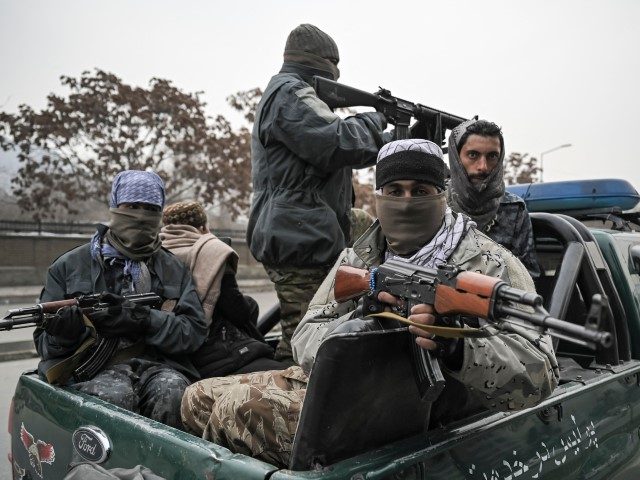The U.N. Security Council (UNSC) voted on Thursday to establish a formal presence in Afghanistan to perform “crucial” humanitarian work, effectively establishing a working relationship with the barbaric Taliban regime, although the resolution was careful not to name the Taliban or expressly recognize it as the legitimate ruling power of Afghanistan.
“This new mandate for UNAMA (the UN mission to Afghanistan) is crucial not only to respond to the immediate humanitarian and economic crisis, but also to reach our overarching goal of peace and stability in Afghanistan,” Norwegian U.N. Ambassador Mona Juul told AFP on Thursday.
“The Council gives a clear message with this new mandate: UNAMA has a crucial role to play in promoting peace and stability in Afghanistan and to support the Afghan people as they face unprecedented challenges and uncertainty,” Juul said. Norway drafted the Security Council resolution.
The resolution called for “close consultation with all relevant Afghan political actors and stakeholders, including relevant authorities as needed,” but did not acknowledge those relevant authorities would largely consist of Taliban officials.
The UNSC vote passed unanimously, although Russia — absurdly sitting as rotating president of the Security Council, even as it wages war against Ukraine — abstained. Russian Ambassador to the U.N. Vassily Nebenzia complained Russia was not consulted enough on the resolution or shown sufficient deference as UNSC president.
Nebenzia also said the resolution did not go far enough to establish “substantive cooperation” with the Taliban regime.
“We wish the mission every success, but we don’t want to bear any responsibility if it ends up that it is not able to fulfill all of the tasks that it faces,” he said.
On the other hand, British U.N. Ambassador Barbara Woodward urged UNSC to look “beyond the humanitarian crisis” and consider Taliban atrocities, such as “reports of reprisals against former government officials, as well as attacks and intimidation against minority groups and civil society.”
“The Taliban need to demonstrate that extremist groups are no longer able to flourish in the country,” Woodward said.
U.S. deputy ambassador Jeffrey DeLaurentis said the UNSC vote was an “important step” toward getting aid to the Afghan people, but insisted the U.S. would be “closely watching the Taliban’s actions.”
“Afghanistan cannot prosper if half the population is denied access to education or is not permitted to work,” he maintained, referring to the Taliban’s mistreatment of women.
Al Jazeera News described the resolution as a grudging recognition by UNSC that Afghanistan “needs the U.N.’s help to avoid an economic collapse and a humanitarian catastrophe.”
“The issue was how to deal with the Taliban, an entity that is sanctioned under international law for its role in the September 11 attacks. What they say in this resolution is that they will deal with all actors in Afghanistan,” Al Jazeera reporter Kristen Saloomey said from U.N. headquarters in New York on Thursday.
The U.N. is struggling mightily to give the Taliban credit for complying with its demands for civilized behavior and equal rights, even though the Taliban has not actually shown much enthusiasm for doing so. For example, the Taliban’s promise to reopen secondary schools for girls next week, after more than seven months of boys-only education, is touted as a sign of progress.
U.N. High Commissioner for Refugees Filippo Grandi told Afghanistan’s TOLOnews on Wednesday that the international community still has certain “expectations” of the Taliban government.
“The international community has an expectation that security is maintained — that minority rights are respected — that girls can go to school and that women can work. These are important elements,” Grandi said.
“At the moment only humanitarian assistance is coming. It cannot be forever. The country needs to move to recovery and development,” he said.
Humanitarian agencies pointed out this week that Afghanistan remains a crisis zone, with a collapsing economy and widespread hunger. They feared the international community has forgotten about Afghanistan during the Russian invasion of Ukraine.
No one seems inclined to hold the irresponsible and inept “Islamic Emirate of Afghanistan” imposed by the Taliban responsible for the safety and health of its own people. The Taliban’s only idea for dealing with Afghanistan’s problems is to repeatedly demand the U.S. unfreeze billions of dollars in assets from the elected government they overthrew.
”Unfortunately, Afghanistan has taken a backseat. This will push Afghanistan further into turmoil and will provide an opportunity for transnational criminal networks to recover,” Kabul Institute of War and Peace Studies Executive Chairman Tamim Asey told Deutsche Welle (DW) on Monday.
“History tells us that humanitarian crises could lead to violent conflicts. It is easier for terrorist groups to operate in a country that is facing economic turmoil. Afghanistan is no exception,” Afghan political analyst Shamroz Khan Masjidi warned DW.

COMMENTS
Please let us know if you're having issues with commenting.